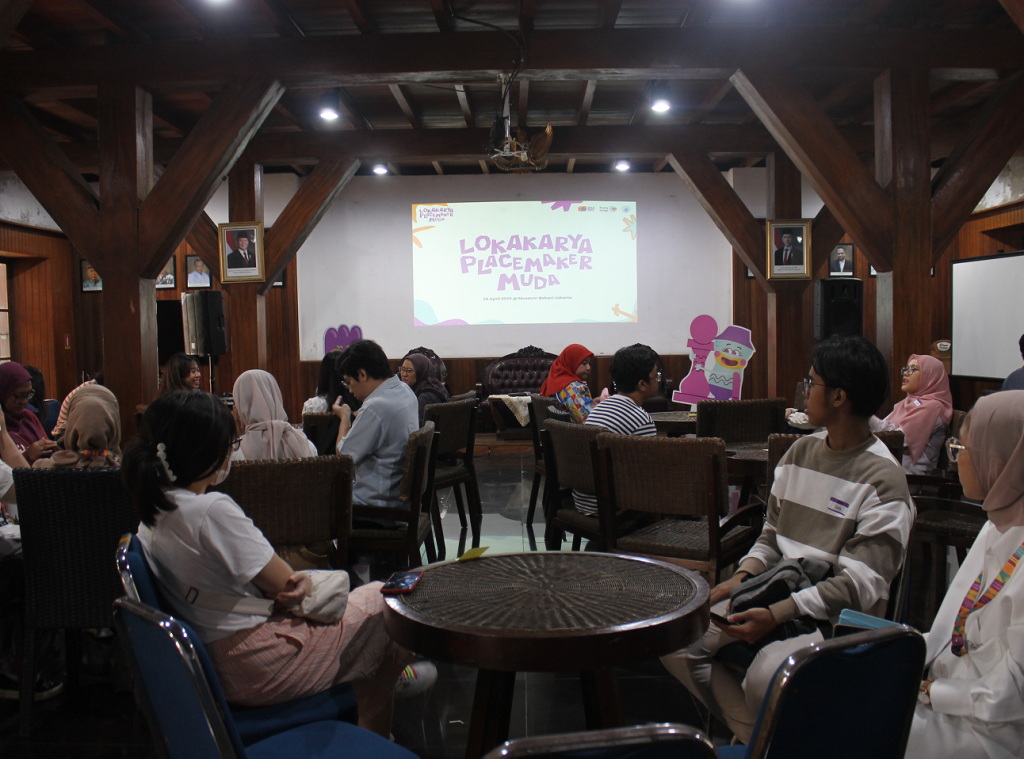Bandung, Indonesia
Lokakarya Placemaker Muda
🌍 Background/Context
Rapid urban development calls for public spaces that are not only functional but also inclusive, creative, and sustainable. While placemaking offers a participatory way to achieve this, many young people struggle to move from interest to action due to limited knowledge and guidance. The Young Placemaker Workshop was therefore designed as a platform to build foundational understanding and practical skills through seminars, group discussions, and an interactive case study at the Jakarta Maritime Museum—encouraging new youth-led initiatives to transform public spaces and foster more human-centered cities.
👥 Who joined the activity?
The workshop brought together 34 participants, consisting of students, young professionals, and community members with a shared interest in cities, public spaces, and collaborative community initiatives. This diverse mix of backgrounds created a dynamic learning environment where ideas and perspectives could be exchanged openly.
🗓️ What activities were held?
The workshop featured a series of interactive sessions designed to combine theory with practice:
- Seminar on Best Practices — Presented by Dheamyra, Co-founder of Kami Ruang Ketiga, highlighting successful initiatives and lessons learned from previous projects.
- FGD: “The Why Behind Placemaking” — An interactive discussion with participants exploring the deeper reasons for caring about public spaces, the real challenges of creating change, and the barriers that often prevent young people from getting involved. The session also examined how to bridge gaps between youth, government, and space managers (such as museums).
- Workshop: “Reimagining the Jakarta Maritime Museum” — Participants explored the museum’s spaces, evaluated current conditions, identified challenges, and engaged in a roleplay visioning exercise. Working in groups, they acted as different stakeholders to set shared goals and co-create ideas for more inclusive and meaningful public spaces.
📈 Impact / Outcome
The workshop successfully strengthened participants’ understanding and confidence in applying placemaking. 34 participants joined the event and gave it an average rating of 4.46/5 stars. Their understanding of placemaking rose significantly—from 2.9/5 before the event to 4.5/5 after. In terms of confidence, 45% of participants felt confident and 56% very confident about implementing placemaking in their own communities. Overall, 90% expressed enthusiasm to put placemaking into practice, with nearly half showing high interest—indicating strong potential for future youth-led initiatives.
Finally, we would like to thank Museum Bahari Jakarta who served as a key partner by providing the venue and acting as the main case study for the workshop. The museum team also shared valuable insights and data that enriched participants’ analysis and exploration of the space.


